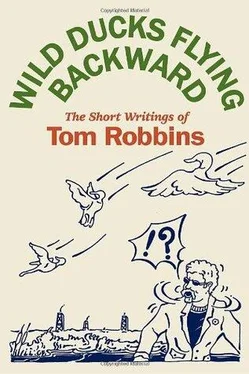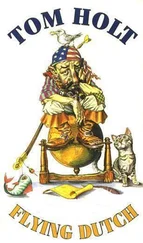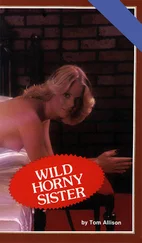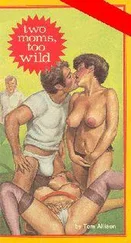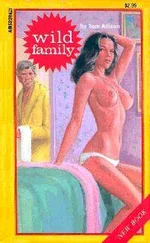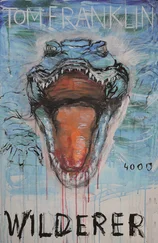McDonald’s not only cooks with computers, assuring that every tiny French fry is identical in color, texture, and temperature, but its “specially designed dispensers” see to it that the Big Mac you may scarf today in Seattle has exactly the same amount of “special sauces” on it as the one your cousin gobbled last month near Detroit. If that extreme of uniformity doesn’t ring your alarm, you’ve already half-moved into the B. F. Skinner anthill.
And yet… We still live in a pluralistic society, where there are probably more than enough French-cooking classes and Mexican fusion sushi bars to satisfy the educated palate and the adventurous tongue. Moreover, “gourmet” burger chains, such as the Red Robin and Hamburger Hamlet, are on the rise.
So what if democracy tends to sanctify mediocrity and McDonald’s represents mediocrity at its zenith, its most sublime? Fast foods are perfectly suited for America, for a population on the move; a fluid, informal people, unburdened by a pretension or tradition; a sweetly vulgar race, undermined by its own brash naïveté rather than by Asian stoicism or European angst. Today there are McDonald’s in Tokyo and Vienna, but they don’t blend in and never will. Here, they are at the heart of the matter, reductive kitchens for a classless culture that hasn’t time to dally on its way to the next rainbow’s end.
When there are dreams to be chased, greener pastures to be grazed, deadlines to be met, tests to be taken, malls to be shopped, Little Leaguers to be feted, sitcoms to be watched, or lonely apartments to be avoided, we refuel in flight. Hookups such as McDonald’s make it easy, if banal.
Columbus discovered America, Jefferson invented it, Lincoln unified it, Goldwyn mythologized it, and Kroc Big Mac’d it. It could have been an omniscient computer that provided this land with its prevailing ambiance, it might have been an irresistible new weapons system, a political revolution, an art movement, or some gene-altering drug. Isn’t it just a little bit wonderful that it was a hamburger?
For a hamburger is warm and fragrant and juicy. A hamburger is soft and non-threatening. It personifies the Great Mother herself, who has nourished us from the beginning.
A hamburger is an icon of layered circles, the circle being at once the most spiritual and most sensual of shapes. A hamburger is companionable and faintly erotic: the nipple of the Goddess, the bountiful belly-ball of Eve. You are what you think you eat.
Best of all, a hamburger doesn’t take itself seriously. Thus, it embodies that generous sense of humor that persists in America even as our bacon burns and our cookies crumble. McDonald’s has served forty-five billion burgers, and every single one of them has had a smile on its face.
So, to Ray Kroc grant a pardon for his crimes against cows, stay his sentence for having ambushed our individuality at Standardization Gulch, order him to perform no more than, say, fifty thousand hours of community service for turning us into a waddling race of lard-assed chubs. Yes, he has changed our habits, undeniably for the worse, but a man who can say of himself, as Kroc did, that “it requires a certain kind of mind to see beauty in a hamburger bun” is a man who can cut the mustard.
Esquire, 1983
Iwant to tell you about the Lizard Queen, I want to tell you about the Shape Changer, I want to tell you about a cuter chimera and a darker rose, I want to tell you about the triple aspects of the Universal Goddess — maiden, mother, and crone; or waif, whore, and witch — as manifest in a single petite young actress from Southern California, whose name you might recognize yet whose looks you would be hard put to describe because she is so dramatically different from movie to movie that you would swear she is not one woman but an encyclopedia of women, a feminine panoply: the three thousand faces of Eve.
I want to tell you that she is a truth-seeking missile, that when developing a role she goes directly for the character’s soul and then fills in around it with disturbingly accurate minutiae. Her triumph is her willingness to descend into the green ooze at the bottom of the psyche, down among the rats and black beetles, only to emerge clutching something gracious, something good, some stained and dented emotional equivalent of the Holy Grail.
And I ought to tell you that while she may be quietly incandescent on both the screen and the set, should you encounter her between films you would find her unassumedly running the most humdrum of daily errands and greeting your questions about her art with a giggle so musical and shy that Marilyn Monroe could have gargled with it. A lack of pretension enhances her power to pretend.
Finally, regarding her paradoxical persona — fly and spider, sunbeam and twister, custard spoon and skinning knife — allow me to report that Alan Rudolph, who directed her marrow-piercing performance in Mrs. Parker and the Vicious Circle, once said, “When I first met her, I wanted to protect her. After I got to know her, I wanted her to protect me.”
Her name is Jennifer Jason Leigh. Let’s take her little hand in ours. Then let’s ask her to guard us, too, against the brutal shadows that she, with incongruous innocence, seems to understand so well.
Esquire, 1994
He was rowed down from the north in a leather skiff manned by a crew of trolls. His fur cape was caked with candle wax, his frown stained blue by wine — though the latter was seldom noticed due to the fox mask he wore at all times. A quill in his teeth, a solitary teardrop a-squirm in his palm, he was the young poet prince of Montreal, handsome, immaculate, searching for sturdier doors to nail his poignant verses on.
In Manhattan, grit drifted into his ink bottle. In Vienna, his spice box exploded. On the Greek isle of Hydra, Orpheus came to him at dawn astride a transparent donkey and restrung his cheap guitar. From that moment on, he shamelessly and willingly exposed himself to the contagion of music. To the furtive religio-sexual inquisitiveness of the solemn seeker was added the openly foolhardy passion of the romantic troubadour. By the time he returned to America, songs were working in him like bees in an attic and connoisseurs were developing cravings for his nocturnal honey, despite the fact that hearts were occasionally stung.
Now, thirty years later, as society staggers toward the millennium, flailing and screeching all the while, like an orangutan with a steak knife in its side, Leonard Cohen — his vision, his gift, his perseverance — is finally getting his due. It may be because he speaks to this wounded zeitgeist with particular eloquence and accuracy, it may be merely cultural time-lag, yet another example of the slow-to-catch-on many opening their ears belatedly to what the few have been hearing all along. In any case, the glitter curtain has shredded, the boogie-woogie gate has rocked loose from its hinges, and here sits L. Cohen at an altar in the garden, staidly enjoying newfound popularity and expanded respect.
From the beginning, his musical peers have recognized Cohen’s ability to establish succinct analogies among life’s realities, his talent for creating intimate relationships between the interior world of longing and language and the exterior world of trains and violins. Even those performers who have neither “covered” his compositions nor been overtly influenced by them have professed to admire their artfulness: the darkly delicious melodies — aural bouquets of gardenia and thistle — that bring to mind an electrified, de-Germanized Kurt Weill; the playfully (and therefore dangerously) mournful lyrics that can peel the apple of love and the peach of lust with a knife that cuts all the way to the mystery, a layer Cole Porter just couldn’t expose.
Читать дальше
